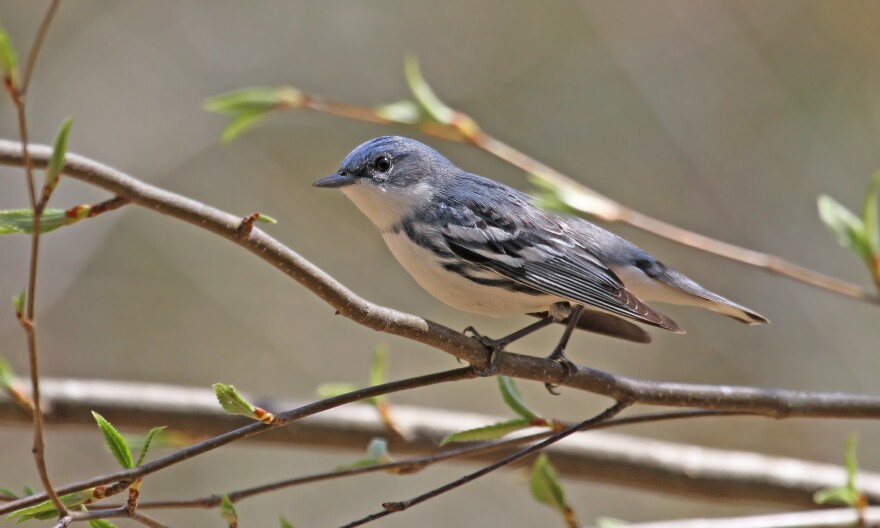If you were out in nature at all this Friday or Saturday, you may have noticed some people with binoculars looking a bit crazed, perhaps more unkempt even than usual, checking their watches and rushing about on trails. That’s because that 24-hour period marked the 40th annual Bird-a-thon, Mass Audubon’s big fundraiser and birdwatching competition. The various regions with Mass Audubon compete for birding and fundraising glory, and the day brings previously dormant birders out of the woodwork to comb all corners of the Commonwealth for birds the other teams may miss.
The event is timed to coincide with peak, or almost peak, migration here in New England – mid-May is when most species that winter elsewhere have already arrived or are expected to arrive, but also when some winter lingerers may still be around to beef up the checklists, like the Snowy Owl still hanging around on a remote Outer Cape beach right now. In Mid-May, something north of 350 species of birds are legitimately in play here in Massachusetts, so you better be ready.
As I sent out the final pep talk to my team on Friday, I had high hopes that when the predicted winds switched to southwest, that would entice migrant songbirds to get up and fly, and that, combined with a foggy morning, would bring a fallout of birds. But, alas, no birds dropped in – they either kept going on the favorable winds or weren’t flying in the first place. Bird migration is hard to predict everywhere, but nowhere more than the Cape.
My brother and I were birding our tradition route entirely within the town of Plymouth, and as the morning went on it became painfully clear that we were not going to break any records. Stop after stop revealed just the basic locally breeding birds - the warblers, tanagers, flycatchers, and thrushes we hoped for, the anticipated birds that get us out of bed at 3AM, just weren’t there. This is why a successful team strategy requires birders in all parts of the state, including Berkshire County, rich with the breeding songbirds we only see as transients.
A typical Bird-a-thon, summed across all statewide teams, records around 270 species in any given year. I don’t know how many species the event produced this year – I haven’t even tallied my own team’s totals – but I suspect it will be on par with other years, as the western and northern counties were all productive and the usual smattering of rarities were about. But here on the Cape we are still waiting for that big wave of migrants that we look forward to all winter, the one that fills the Beech Forest in Provincetown with warbler song and happy birders.
The abject failure of migration this Bird-a-thon tested the resolve of we seasoned birders, those who count on finding, say, 20 species of warblers on Bird-a-thon day to maintain our sense of ornithological self-worth. The warm weather and lack of migrants made it feel like late June all day, sapping our springtime enthusiasm. Luckily some of my team members here on the Cape had better luck, finding unexpected birds like the always rare and achingly lovely Cerulean Warbler, and a graceful little hawk of the south, a Mississippi Kite, in Provincetown. Plus my stalwart island birders produced all the specialties you can only get on the other end of a ferry ride, like Black Skimmer and Barn Owl. We may be in the running for most species after all.
If we win, rest assured you’ll hear it here first. Meanwhile, we’ll wait for our big wave of migrants here on the Cape and Islands. Hopefully it’s just a little late, and in the next few days we’ll be swatting away songbirds like mosquitoes, because while Silent Spring was a great book, it’s not something that needs a 2022 “reboot”.








